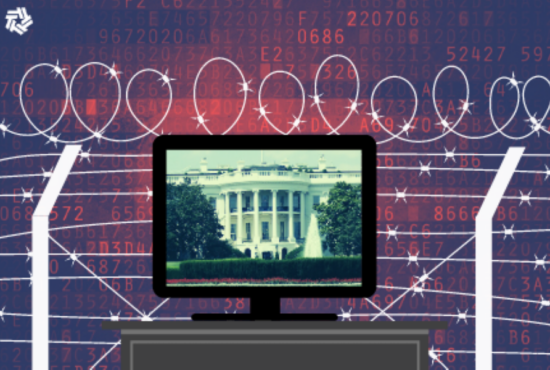Lawmakers tee up federal fraud scorecard to measure agency programs
Social Security’s SSI program and the IRS’s Earned Income Tax Credit program are among those subject to the new federal fraud scorecard.
House lawmakers will soon unveil a federal fraud scorecard that evaluates how major programs are taking steps to reduce fraudulent and improper payments.
Leaders on the House Oversight and Accountability Committee’s government operations subcommittee spent the past year developing the scorecard. Ranking Member Kweisi Mfume (D-Md.) said the bipartisan initiative will “assess the progress of key government spending programs in reducing fraud and improper payments.”
Lawmakers initially intended to roll out the tool during a subcommittee hearing Tuesday. But Chairman Pete Sessions (R-Tx.) said they still need more data before launching the federal fraud initiative.
“It’s become apparent that we simply lack the data to determine whether programs and agencies are getting better,” Sessions said. “It is unacceptable to think that we would simply excuse this behavior rather than fixing what has been placed before us.”
Mfume said the scorecard will assess programs representing the “highest fraud risk per dollar.” They include the IRS’s Earned Income Tax Credit (EITC), as well as the Social Security Administrations’ Supplemental Security Income (SSI) program.
“It is increasingly and crucially important for me, and I will say for all members of this committee, that we assess the degree of fraud and progress in combating fraud and the improper payments in these programs, because they’ve been so successful in keeping our country afloat, particularly during the worst of the COVID-19 pandemic,” Mfume said.
The Government Accountability Office earlier this year estimated federal fraud losses could total as much as $521 billion annually. The White House Office of Management and Budget has disputed that estimate, calling it “unrealistic.”
But lawmakers have continued to probe federal fraud prevention efforts, spurred on by high rates of improper payments and fraud in COVID relief programs. The GOP majority on the House oversight committee this week released a new report on fraud in pandemic unemployment relief programs.
During Tuesday’s hearing, members of the subcommittee pledged to carry federal fraud prevention efforts forward in the next Congress. Mfume called for an “omnibus antifraud act.”
Witnesses testifying before the subcommittee applauded the new scorecard initiative for potentially bringing more data and light to the issue.
And Justice Department Inspector General Michael Horowitz, chairman of the Pandemic Response Accountability Committee (PRAC), again called on Congress to reauthorize and expand the PRAC’s Pandemic Analytics Center of Excellence (PACE). The PRAC’s authorities expire next September.
House Oversight and Accountability Committee Ranking Member Jamie Raskin (D-Md.) earlier this year introduced legislation that would create a successor to the PRAC, called the “Government Spending Oversight Committee,” within the interagency council of IGs. A companion bill in the Senate has already passed through a committee vote.
Horowitz argued the PRAC’s data and analytics capabilities, provided through PACE, are unique in helping agencies both investigate and prevent fraud.
“We’re the only analytics platform that can look across agencies for multiagency fraud schemes, which we saw repeatedly during the pandemic,” Horowitz said.
Orice Williams Brown, chief operating officer at GAO, said the key to federal fraud prevention is ensuring agencies design antifraud controls into programs from the start.
“We have to make sure that agencies understand that prevention is key, and having upfront controls isn’t at odds with their core mission,” Brown said. “It’s actually integral to the mission, and I think that if Congress could push on one place, I think that’s critically important, because that will make it a priority for the agencies.”
Data on federal fraud
But witnesses pointed to a lack of data sharing across agencies as a key barrier to combatting federal fraud and improper payments. The Treasury Department, for instance, needed Congress to pass legislation to gain temporary access to SSA’s Death Master File so it could avoid sending payments to dead people during the pandemic.
Linda Miller, former PRAC deputy executive director and co-founder of the new Program Integrity Alliance, said Congress should look to give Treasury permanent access to the Death Master File, as well as other data sources, to improve the agency’s “Do Not Pay” system.
Miller advocated for Treasury also gain access to the National Directory of New Hires, which is administered at the Department of Health and Human Services. And she called for Treasury to gain exemptions to the Computer Matching and Privacy Protection Act, which regulates the automated matching of records across agencies.
“There’s a lot of technological advancement in hashing and being able to mask the identities the person identifiable information,” Miller said. “And so this privacy issue, the tension between privacy advocates and the use of data for fraud prevention, is a real tension in the policy space.”
While many agencies struggle with antifraud controls, Miller said there are some “bright spots.” She pointed to efforts at the Treasury’s Office of Payment Integrity and the Small Business Administration, respectively, to use more fraud prevention data and tools.
“Hardworking public servants across the government are trying to meaningfully tackle the problem, but legal barriers, technological limitations, scarce resources and lack of senior level buy-in are too often standing in their way,” Miller said.
Copyright © 2025 Federal News Network. All rights reserved. This website is not intended for users located within the European Economic Area.
Follow @jdoubledayWFED




